Early Math Olympics!
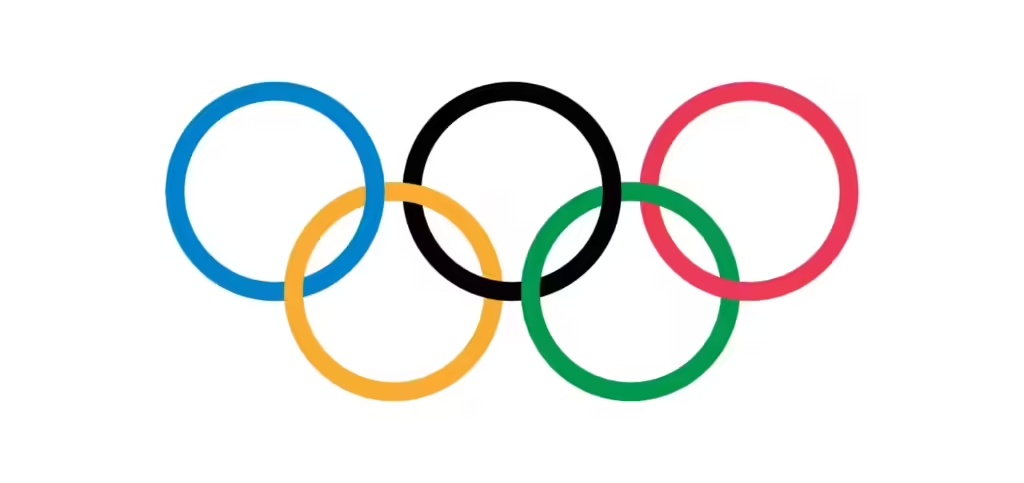
“Hey! Let’s play Olympics! ” shouts four-year-old Carl. “We can have a relay race and use a paper towel tube for the relay baton. Who wants to play?”
“Let’s do the long jump!” calls out Celia, who is already jumping up and down with excitement.
A week of watching the Paris Olympic Summer Games at home with their parents has transformed these early learners into Olympic hopefuls!
This Olympics fever has set our play and learning in motion for the week. It’s a great opportunity to get outdoors and get those little bodies moving while we factor in some early math.
I grab a stopwatch and a tape measure to help my early Olympians build their early math foundations.
“Can you time me and see how long I can hang on these rings?” asks Maya.
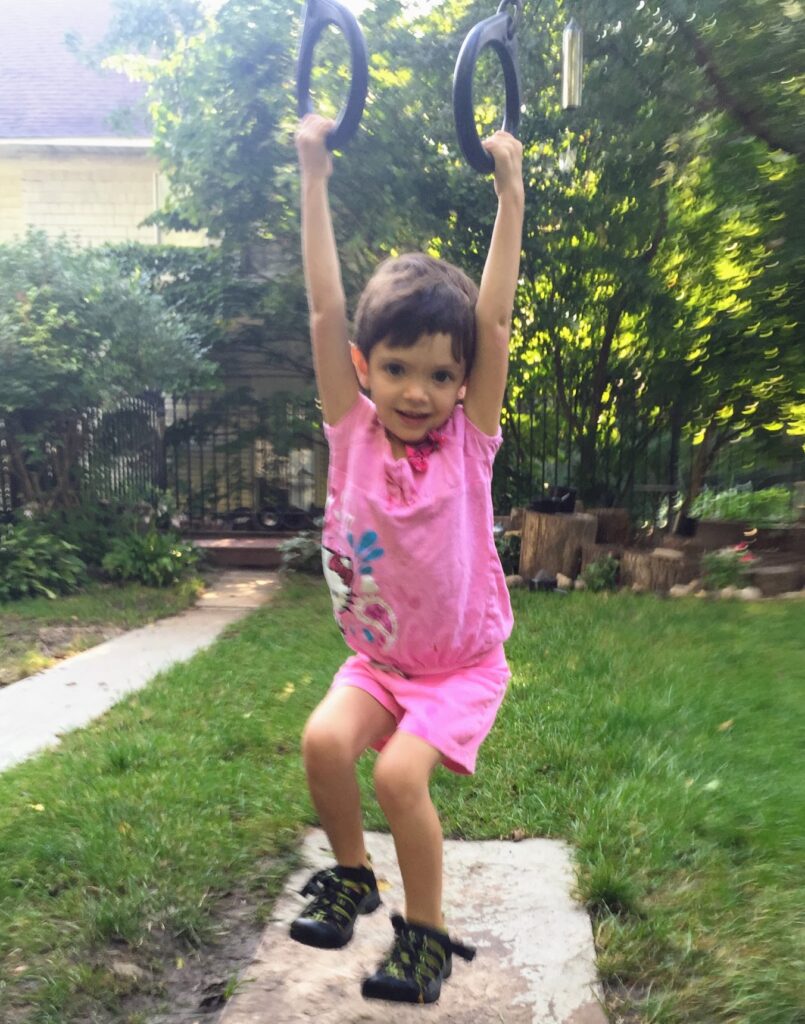
By incorporating a stopwatch into our Early Math Olympics, I’m giving the children an opportunity to build their number recognition skills by identifying and reading the numbers on the stopwatch display.
Introducing children to a stopwatch early on can also help them grasp the concept of time in a practical way. By watching the stopwatch record seconds and minutes, kids gain a rudimentary understanding of the passage of time. It’s a hands-on way for them to learn how to measure time and how activities fit into different timeframes.
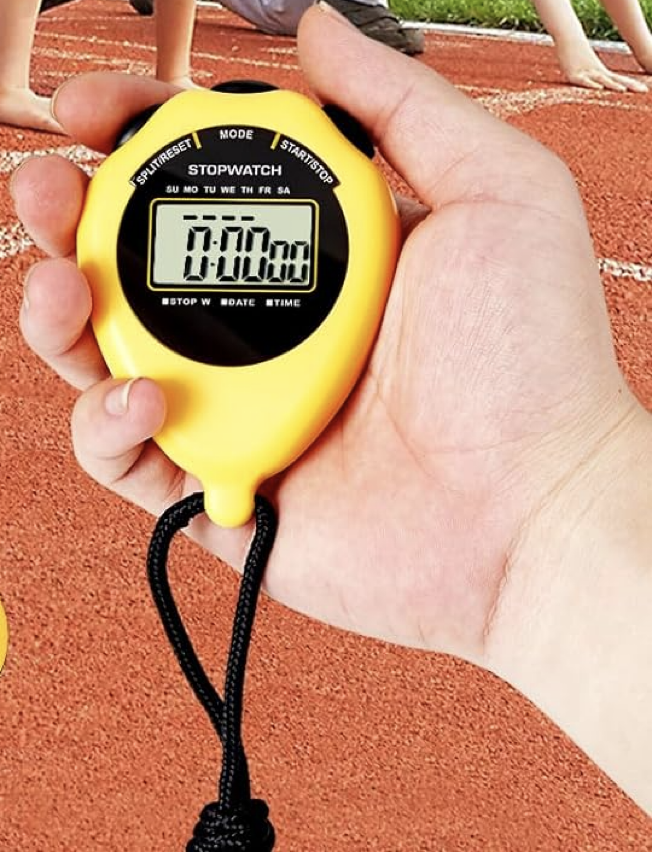
“Watch how far I can jump and then tell me what number it is!” shouts Caleb.
Our Olympic long jump event encourages the children to develop physical skills such as coordination and strength as they learn about early math concepts such as measurement, counting, comparing, and estimating distances.
We estimate how far the children think they can jump and then record each child’s long jump with the measuring tape. Afterward, we compare the difference between their predictions and the actual results.
We use a frisbee as a discus and a softball for the shot put. You can measure everything from a long jump to the distance a child can spit a watermelon seed in a seed-spitting contest! The beauty of these Early Math Olympics is that we get to create our own variations on the actual Olympic games as the day progresses.
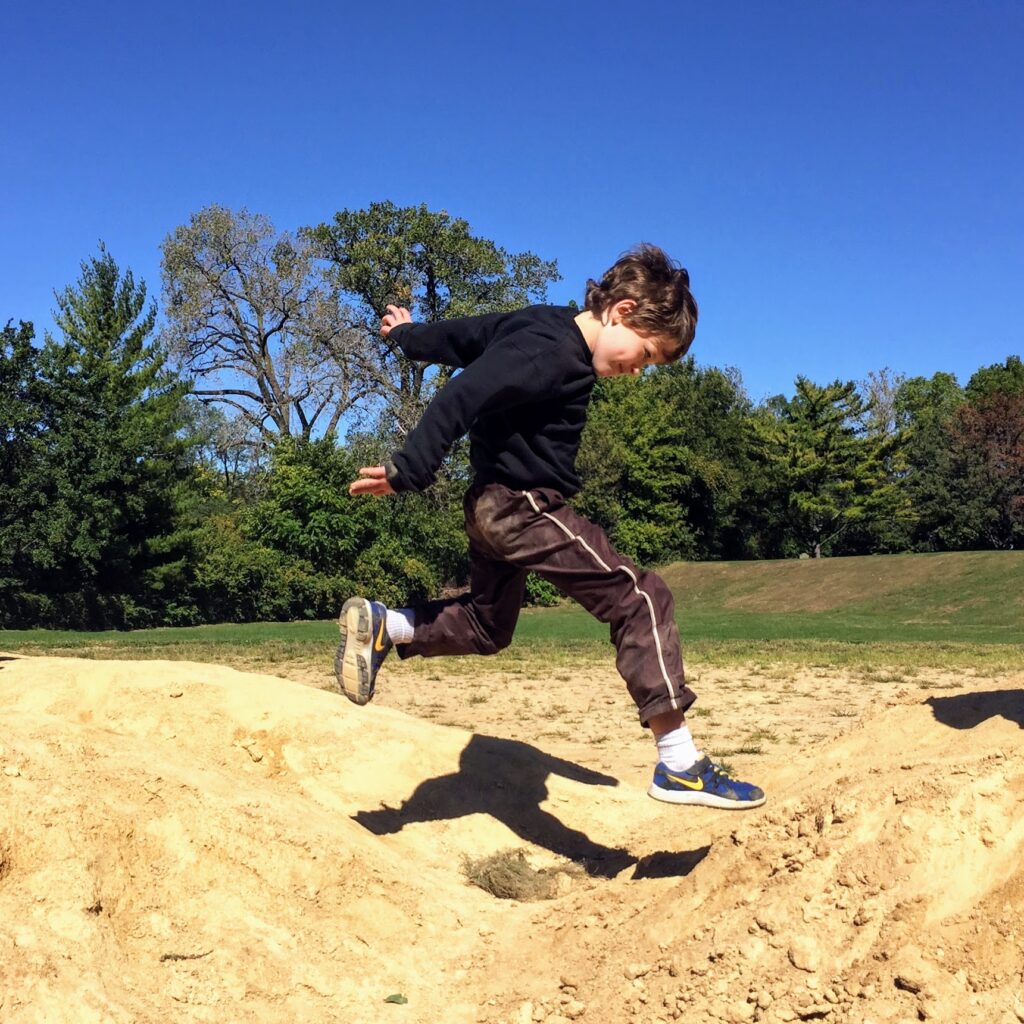
Our favorite event of the day is the steeplechase, which combines distance running with several obstacles. An obstacle course may look like play, but it’s chock full of learning opportunities. We created a series of simple obstacles, such as crawling under picnic tables, jumping over cones, and balancing on a beam.
Obstacle courses are a great way for children to develop their spatial skills as they expand their spatial vocabulary.
Set up an obstacle course and listen in as the children naturally use spatial vocabulary words such as above, around, below, beside, between, over, and through.
Obstacle courses also teach children about sequencing, memory, and following directions.
Best of all, kids LOVE them!
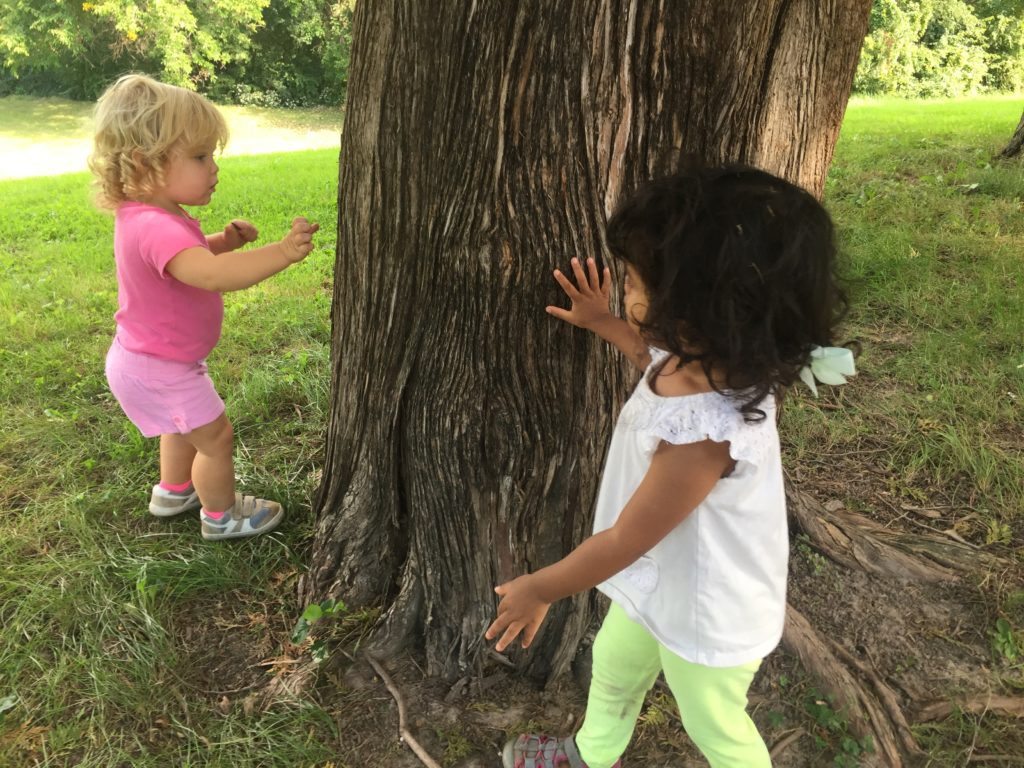
As you design your obstacle course, include the following elements to make it both fun and challenging:
- Something to climb over: We climb over the picnic table or up the slide.
- Something to weave around and between: We often use cones or buckets, two-liter plastic bottles filled with water, or landmarks such as trees, bushes and gardens.
- Something to crawl through or under: We use tunnels, parachutes, boxes, etc.
- Something to walk or balance on with care, such as a curved rope, river rocks or tree stumps.
- Something to run toward, such as a fence, a tree, or a door at the beginning or end of the course.
It’s likely that one competitive child in your group will want to make a chart, add columns and times, and keep score. Fortunately, that will satisfy the “Recognizes and Organizes Data and Information” early learning standard for that child. If the scorekeeping catches on with the group, be sure to have a laptop on hand to check off all of those standards!
If your early learners catch Olympic fever this month, sneak in the math, check off those early learning standards, and enjoy the fun!
Good
Great way to be relevant and fun while learning math.
I LOVE EVERYTHING ABOUT THIS LESSON! I am going to use these ideas at my center in my room.
pictograph graph are helpful
This is so fun for the kids and makes math fun
making math fun for children is awesome and will become very helpful for them
Didn’t do a full obstacle course, however, we did the through part. The infants crawled through a tunnel tube. At first they just stood there and looked at it. After I modeled what they should do, it was a breeze. We had so much fun.
DATA ANALYSIS
After the children have finished their Math Olympics, all the areas that they participated in, can be charted.
I was just going to ask what the appropriate age for this activity would be but by reading the comments, I feel everyone that can walk or crawl and up. This activity sounds like my kids would love. Thank You!
Hi Maria,
I think you are on to something! This is a very adaptable activity that educators can use for the ages and developmental levels that they have. Thanks for sharing!
I enjoy this game because everyone can participate and it’s fun.
All children develop at different pace and at different stages, this activity is awesome for that reason
This is an excellent concrete way to teach measurement via kinesthetic learning.
This is good for kids to understand the value of measuring time because that way they know about time in speed and the measurement.
Great way to math vocabulary to large motor activities.
recognizes and organized data and information are very important subject
This one lesson covers all the aspects in these courses. Excellent, I can’t wait to try it.
I love it! These are great and simple ways to enhance a theme and incorporate math concepts.
Perfect timing for the Olympics that is going on right now. This can help the children learn about time, distance and measurements.